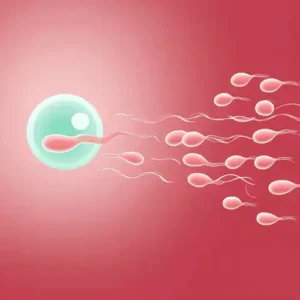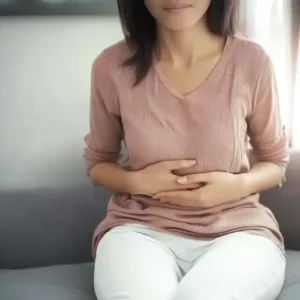When you’re trying for a baby, it’s important to know when you are most likely to get pregnant. Did you know that there are just six days during any cycle when a woman can get pregnant? These are the five days before ovulation and the 24 hours after ovulation. This is because sperm can live for up to 5 days in a woman’s body, and the ovum lives for only 12-24 hours.
The key to finding out when you can get pregnant is knowing when you ovulate. Working out the precise timing of ovulation can be hard, because it does not happen at exactly the same time each cycle. That is why it’s important to know your cycle.
In this article, we look at the various stages of the menstrual cycle and the times when conception is viable.
During Your Period
For most women, ovulation begins about two weeks before the start of their period. Having sex during your menstrual cycle is unlikely to result in conception as your period is generally too far ahead of ovulation.
Pre-ovulation
During the pre-ovulation stage, conception is possible as sperm can survive within cervical mucus for up to 5 days. When trying for a baby, it is important that you try and have sex often in the days before ovulation. Ideally you should aim to be having sex every other day in the week before ovulation is due. Normally this will be at about day seven in your cycle.
Ovulation
The prime time for conception is during ovulation. This is why it is important that you track your cycles using ovulation tests. You should also monitor your vaginal discharge and track your temperature. using a BBT Thermometer. During ovulation, the temperature of your body will rise by about half a degree. This is a strong indicator that it’s time to start baby making! If you have been tracking your cycle, you should have a really good idea of when you are ovulating and it’s during this 24 hour window that you will be most likely to conceive.
By having intercourse often during ovulation, you have a very high chance of getting pregnant.
It’s important to remember that it may take several months of trying before conception occurs, even if you are timing intercourse correctly. Don’t get discouraged if it doesn’t happen right away. It’s also important to maintain a healthy lifestyle, including a balanced diet and regular exercise, to increase your chances of conception. Additionally, avoid alcohol, smoking, and other harmful substances, as they can decrease fertility. Talking to your doctor about preconception care and any potential health concerns is also recommended. By taking these steps, you will increase your chances of conceiving and starting the journey towards parenthood.
Post-Ovulation
It is possible to get pregnant in the day following your ovulation. However you should be aware eggs only survive for about 12 hours, so once that small amount of time has gone by, the chances of conceiving become very low and you will need to wait for your next cycle.
During the post-ovulation phase, the fertilised egg begins to travel through the fallopian tube towards the uterus. If the egg is not fertilised, it disintegrates and is expelled along with the uterine lining during the next menstrual cycle.
It’s important to note that some women may experience symptoms during this phase, including breast tenderness, bloating, and mild cramping. These symptoms may also be indicative of an impending period, so it’s important to keep track of your menstrual cycle and any changes in your body.
The Key Is to Have Frequent Sex!
If you are looking to get pregnant quickly, having sex every couple of days during the month will give you the best chance. Try not restrict sex to just the days around ovulation. Trying to do this can be stressful, and being stressed may mean you have less sex. Try and use a fertility lubricant such as Conceive Plus or Pre-Seed. These types of lubes have been shown to be helpful when trying for a baby and can make frequent baby-making more comfortable and enjoyable.
It’s important to remember that getting pregnant is not always easy or guaranteed, even if you are doing everything right. It can take some couples several months or even years to conceive. If you have been trying to conceive for over a year without success, or if you are over the age of 35 and have been trying for six months, it’s a good idea to seek medical advice from your healthcare provider. They can help you determine if there are any underlying issues that may be preventing you from getting pregnant, and provide you with guidance on next steps. Remember to stay positive, be patient, and give yourself and your partner the love and support you need throughout this journey.
Photo by Anthony Cunningham for Zoom Baby
Zoom Baby is a leading supplier of Pregnancy Tests and Ovulation Test Kits
This post was originally published in 2019. It was last updated in January 2025.





